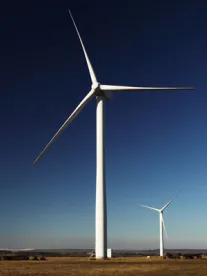The Federal Energy Regulatory Commission (FERC) has announced two technical conferences that are likely to lay the groundwork for future federal policy related to renewable energy development and decarbonization of the grid. On September 30, 2020, FERC will hold a technical conference concerning carbon pricing in the “organized markets” operated by Independent System Operators (ISOs) or Regional Transmission Organizations (RTOs). On October 27, 2020, FERC will hold a second technical conference to address issues arising from the interconnection of offshore wind energy with transmission systems in the organized markets. Because FERC technical conferences are often the starting point for major FERC policy developments, these technical conferences deserve careful attention from renewable energy producers, utilities, independent transmission developers, and others in the electric industry. Those wishing to speak at the offshore wind technical conference must submit an application to FERC by August 14. FERC has not announced a process to identify speakers for the carbon pricing technical conference.
Background
The technical conferences will address interrelated issues concerning the manner in which FERC’s regulation of wholesale electric markets and electric transmission operate in conjunction with state-level policies designed to reduce greenhouse gas emissions from the nation’s electric generation fleet. The technical conference on carbon pricing answers a request from a broad coalition of renewable energy developers, trade groups, independent power producers, and think tanks that FERC hold a technical conference to address carbon pricing in light of a variety of state policies addressing that issue, as well as indications from several of the nation’s ISOs and RTOs that they are considering incorporating carbon pricing into the markets they operate.
FERC’s actions in this area have provoked considerable controversy in recent months, particularly in its orders concerning the Minimum Offer Pricing Rule (MOPR), a mechanism intended to ensure adequate generation supplies in the organized markets, in a manner that many industry participants believe disfavors renewable energy development – so much so that state commissions in several affected states are considering withdrawing from the RTOs or ISOs that serve them. The entities requesting a technical conference have not advocated any particular policy to address this or related issues. Instead, they seek an open forum to discuss how carbon policies such as the Regional Greenhouse Gas Initiative, which operates in the Northeast and Mid-Atlantic states, and greenhouse gas initiatives in California, affect the ISO/RTO-operated wholesale markets operating in those states, how greater efficiencies in carbon pricing might be achieved, and how policies designed to prevent “leakage” (that is, the migration of carbon-intensive industries to regions or countries without carbon pricing) might best be designed.
The technical conference on offshore wind transmission integration comes at a time when offshore wind in the United States is poised for explosive growth. In the near term, the growth is likely to be focused in the shallow waters off the Northeast states, where the electric transmission system is operated by ISOs and RTOs. FERC’s decision to convene the technical conference arises from a complaint filed by Anbaric Development Partners, LLC with FERC in November 2019 asserting that it was unable to connect its proposed offshore transmission system with the transmission system operated by PJM Interconnection, the RTO for the Mid-Atlantic region, on just and reasonable terms. On June 19, FERC rejected Anbaric’s complaint. However, it concluded that the issues raised by Anbaric were sufficiently weighty that they should be explored more deeply in a technical conference.
Importance of the Technical Conferences
FERC technical conferences are an important forum to lay the groundwork for new policy approaches or significant adjustments to existing policies. The technical conference on carbon pricing will address critical questions concerning the relationship between state carbon policies and federal policies governing competition and prices in the wholesale electric markets. The technical conference may help identify means to improve the transparency of carbon pricing and the efficiency of carbon offset markets, as well as methods for mitigating the conflict between state and federal authorities that have emerged concerning renewable energy development in recent months. These questions are, of course, central to a variety of policies aimed at addressing climate change, ranging from carbon credit markets to renewable portfolio standards.
The technical conference on offshore wind development will address a different, but equally important, set of issues. In convening the technical conference, FERC appears to recognize that the development of the nation’s huge offshore wind capacity requires consideration of how transmission can be most efficiently constructed to deliver electric power from offshore wind facilities to customers who are served by the existing onshore transmission system. Offshore development, of course, involves unique environmental challenges, and constructing a single large transmission line to deliver power to the grid is likely to have a smaller environmental impact than constructing multiple transmission lines to serve the same amount of generation. Similarly, constructing one large transmission system to serve multiple projects is likely to be more economically efficient than having each project construct a separate line to deliver its power to shore. FERC’s current policies governing transmission expansion may be ill-suited to these needs, and the technical conference will lay the factual and economic groundwork for revising FERC policies to facilitate the huge expansion of offshore wind generation that is now widely anticipated.
Finally, the technical conferences are likely to be important even for those entities operating outside the organized markets, since FERC policy developed in the organized markets is often transposed into markets without an ISO or RTO. Similarly, although immediate demands for expansion of the offshore transmission system arise from wind development on the Eastern seaboard, rapid technological advancements suggest that large-scale development of the West Coast’s offshore wind resources will occur in the not-too-distant future despite the engineering challenges posed by the deeper waters off the West Coast.
Conclusion
Entities with an interest in climate policy, carbon markets, or renewable energy should pay close attention to the FERC technical conference on carbon pricing and whatever policy initiatives flow from that conference. Similarly, entities with an interest in offshore wind development should pay careful attention to the offshore wind technical conference because it is likely to be the genesis of FERC policies calibrated to maximize the efficiency of transmission constructed to move offshore wind to market.




 />i
/>i

